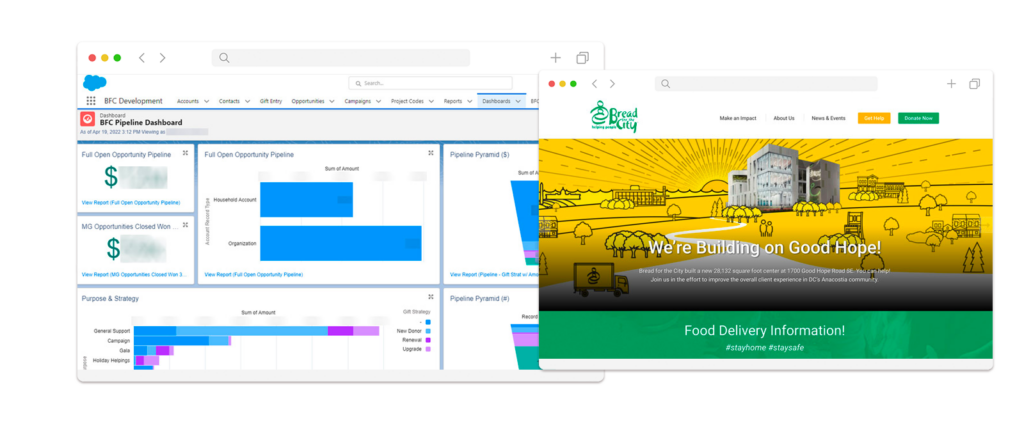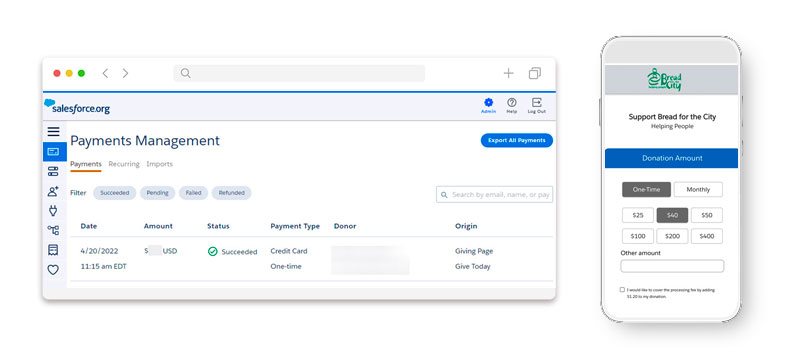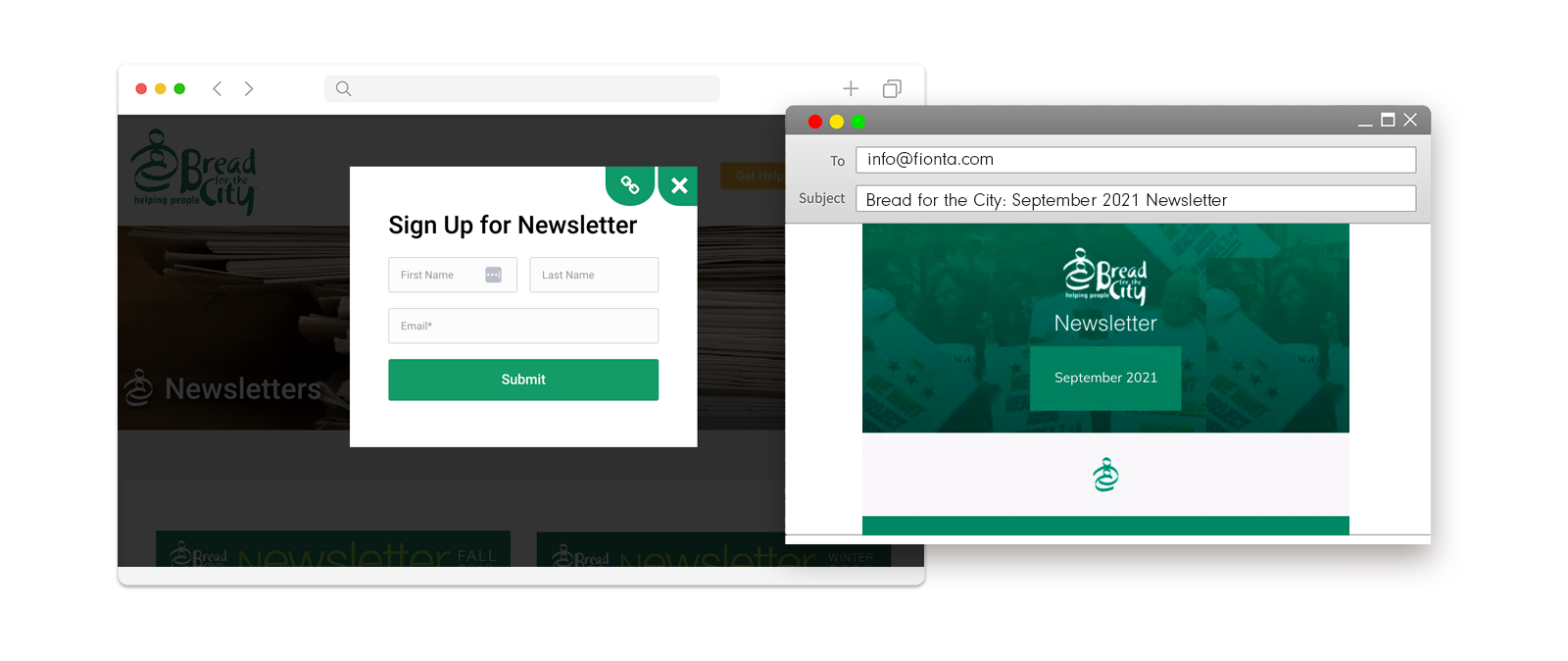Bread for the City experienced operational challenges caused by inadequate legacy tools, unreliable data, and siloed marketing tools that needed more integration and automation capabilities to enhance donor engagement.
BFC struggled with legacy tools like Raiser’s Edge that no longer met their fundraising and development needs. The fundraising staff responsible for fostering donor relations and driving donor engagement could not rely on the data in Raiser’s Edge, which was the source of truth for donor data across all systems in the organization.
The lack of integration between Raiser’s Edge and BFC’s accounting solution resulted in labor-intensive monthly reconciliations.
The MailChimp email management solution did not meet BFC’s engagement and ROI requirements.
To meet organizational expectations of fundraising success, Fíonta collaborated with Bread for the City to expand its Salesforce footprint and harness Salesforce for Nonprofits.
Fíonta collaborated with BFC to leverage their existing investment in Salesforce and implement a comprehensive solution for fundraising and development. The plan involved seamless integration on the Salesforce platform, data migration from Raiser’s Edge, customized training, and utilizing Marketing Cloud Account Engagement (formerly Pardot) paired with Elevate for online giving.
The direct integrations and marketing automations empowered the BFC development team to run reports that provided insight into the ROI of donor engagement strategies, marketing workflows, and campaigns.
Newfound transparency in data and an overall unified approach to standards in data hygiene allowed BFC to realize its fundraising potential and provide more services to District of Columbia residents.

Bread for the City now has a reliable central source of truth for fundraising and development data, ensuring confidence in their data-driven decision-making. The simplification, streamlining, and sanitization of fundraising tools and data increased the overall efficacy of the organization and its impact on the thousands of people served every year.
The BFC development team gained the necessary tools and training to run impactful reports, maintain an organization-wide system of data hygiene, and take more ownership of their data than ever before. Fundraising staff no longer experienced disjointed workflows caused by siloed data and cumbersome legacy technologies, propelling the organization into a modern era of marketing optimization.
After completing customized training, the BFC development team can run reports as needed and takes more ownership of its data than ever before. BFC has more marketing automation power in Marketing Cloud Account Engagement and a flexible, easy-to-use solution for online giving with Elevate.


Steering all project facets like budget, schedule, scope, and risk management while collaborating with technical leads on risk handling, our project managers serve as the primary liaison with clients, offering frequent updates on project progress.
Focused on data analysis, schema design, data migration management, and complex data integration. They collaborate with clients and internal teams, handle data mappings, configure data sources, create scripts or apply tools to execute data migration and/or integrations, write test scripts, and document any deviations from original migration plans.
Salesforce developers specialize in crafting and tailoring applications beyond what is available out-of-the-box using Salesforce-specific tools like Apex, Visualforce, and the Lightning Component Framework, and integrating with various systems through Salesforce APIs.
Specializing in Salesforce and associated systems, our experts configure client instances following technical leads’ solutions, focusing on building functionality.


